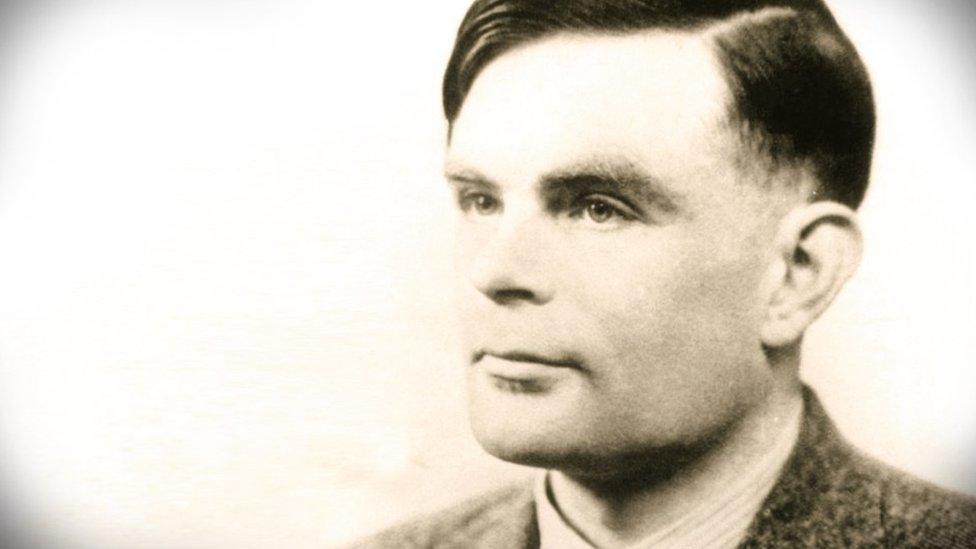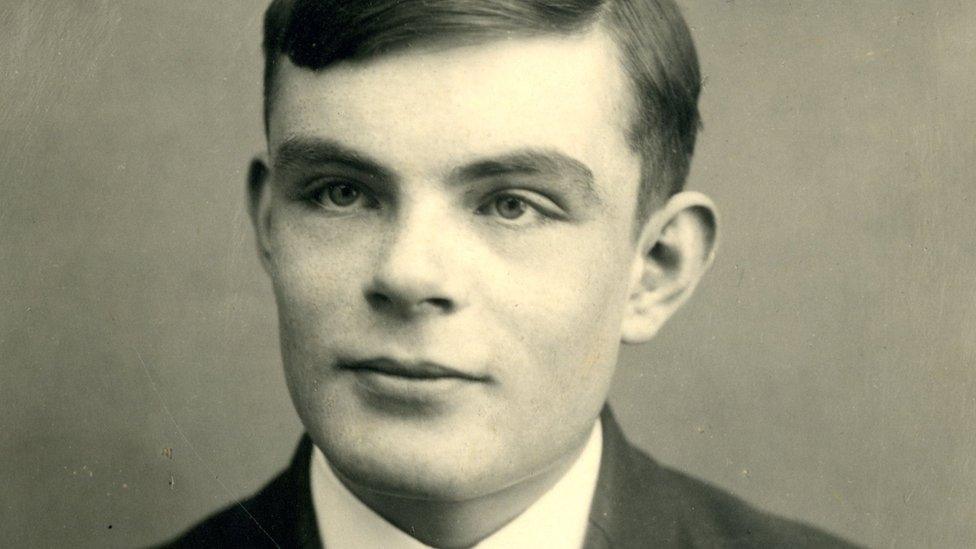Thousands of gay and bisexual men pardoned for 'crimes'
- Published

Thousands of gay and bisexual men have been pardoned for crimes they were convicted of because of their sexuality.
In the UK, it used to be a crime to be gay or bisexual, so many people have criminal records because of it.
However, it isn't a crime anymore.
Over the years, many people have campaigned for people with criminal records for being gay or bisexual to have their records cancelled.
They did not think it was fair that they should be called criminals because of something that is not a crime anymore.

In the past, it was illegal for a man to be gay or bisexual
Now, the government has agreed to officially pardon the men accused of 'crimes' like this. Being pardoned means they will no longer have a criminal record.
It was first announced that this was going to happen last year. But now, it has received royal approval.
This pardoning has come to be known as the Alan Turing law.
Alan Turing was a man who cracked codes during World War Two. He was gay and convicted because of this. In 2013, he was pardoned for this 'crime', after his death in 1954. Being pardoned after death is called being posthumously pardoned.

Alan Turing as a schoolboy
Dr Sue Black, a computer scientist, was one of the main people who campaigned for Alan Turing to be pardoned.
"It's a disgrace that so many people were treated so disrespectfully," she said.
The pardoning applies to gay and bisexual men with criminal records for this who are no longer alive.
It will also apply to those who are still alive who have applied to have the 'crime' removed from their record.
